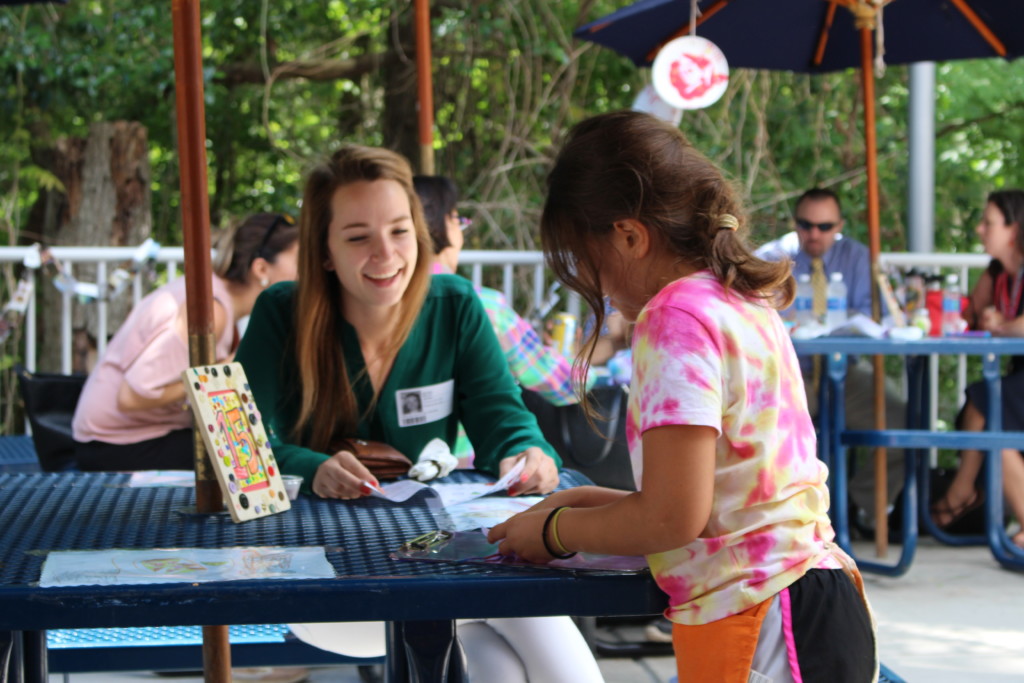
The University of Florida’s K-12 laboratory school has seen promise in a new learning method where students learn at their own pace.
Competency-based learning gives students the opportunity to advance to higher levels of learning based on their mastery of the topic rather than the amount of time they spend in class.
P.K. Yonge Developmental Research School joins three districts in Florida that are test driving the concept.
A 2016 law created a pilot program for Pinellas, Palm Beach, Seminole County school districts, as well as P.K. Yonge, to experiment with competency-based learning, which dovetails with personalized learning. It allows them to apply to the Florida Department of Education for waivers from state regulations that might stand in their way. A fourth district, Lake County, has backed away from the initiative.
Lynda Fender Hayes, director of P.K. Yonge, Christy Gabbard, program development and outreach specialist and communications director Julie Henderson answered several of our questions on the implementation of competency-based learning. We made some minor edits to their written responses for clarity and length.
Q: What are the annual goals and performance outcomes for P.K. Yonge’s rollout of the competency-based learning program? Are they on track with the five-year program?
A: We have just completed the first year of our competency-based education pilot and data for annual goals and performance is still being collated and analyzed. Based on the four goals identified in our CBE pilot timeline for years 1-2 we are on track. These goals relate to 1)faculty responding to the needs of a wide variety of learners, 2) investigating and developing ways to increase the integrity and clarity of reporting student outcomes within a competency-based system, 3) developing a broader understanding and commitment to mastery-based learning (for faculty) and 4) developing processes that build teacher capacity in recognizing proficiency demonstrated in a standards-based competency-based system.
Q: Do you find the program is beneficial, allowing students to master the standards at their own pace?
A: It’s still very early to say what impact a fully formed/implemented competency-based education model has on students. At P.K. Yonge, our path toward a competency-based education model is rooted in work on standards-based grading, technology, implementation, universal design for learning and assessments for learning.
We are seeing promise in a number of areas, one of which is our through practitioner inquiry work focused on Standards-based Grading. P.K. Yonge faculty are continuing to collect classroom and standardized test data that show positive impact on student learning, both in terms of academic knowledge and skill, as well as in the development of students as learners who have ownership of their learning and take action in relation to their goals.
Q: What are some examples of competency-based learning?
A: U.S. History eighth grade. Assessment is based on a student’s ability to develop a response to the essential question provided at the beginning of the unit. Students are required to make an intelligent argument and demonstrate their understanding in writing, a conference with a teacher or another manner. This model promotes the production of work for understanding instead of producing work for points…. The model is focused on competency, on what we want students to know and understand, and provides flexibility for students to demonstrate mastery, not on how many tasks are completed or worksheets are handed in.
Q: Has P.K. Yonge applied for waivers of state laws concerning competency-based learning?
A: We continue to put forward our ideas and considerations related to policies that we view impact this work. As we continue to learn and develop our work we anticipate that we will be able to be increasingly specific with FLDOE regarding areas of policy that may need further consideration.
Q: How are you keeping track of your student’s progress with competency-based learning?
A: We are tracking and responding to student needs and progress by defining clear learning goals, which are directly connected to standards. There are also clear indicators and rubrics aligned to each learning goal. We have done significant work with regard to the definition of clear learning goals and are working with students to develop their capacity in tracking their own progress with regard to those goals. We have also been working toward developing a standards-based grading gradebook and report card that connects the work on development of clear learning goals and tracking student progress, as well as grading students based on proficiency vs compliance.


